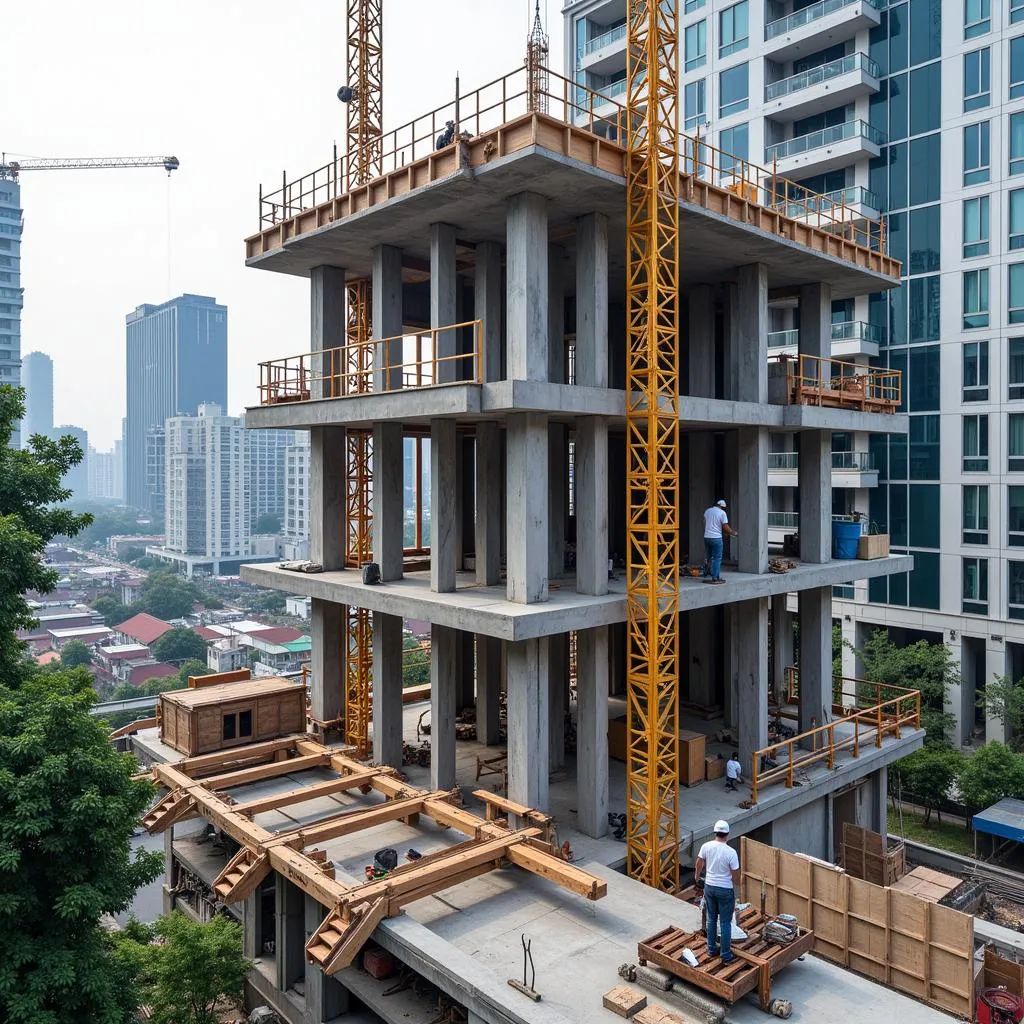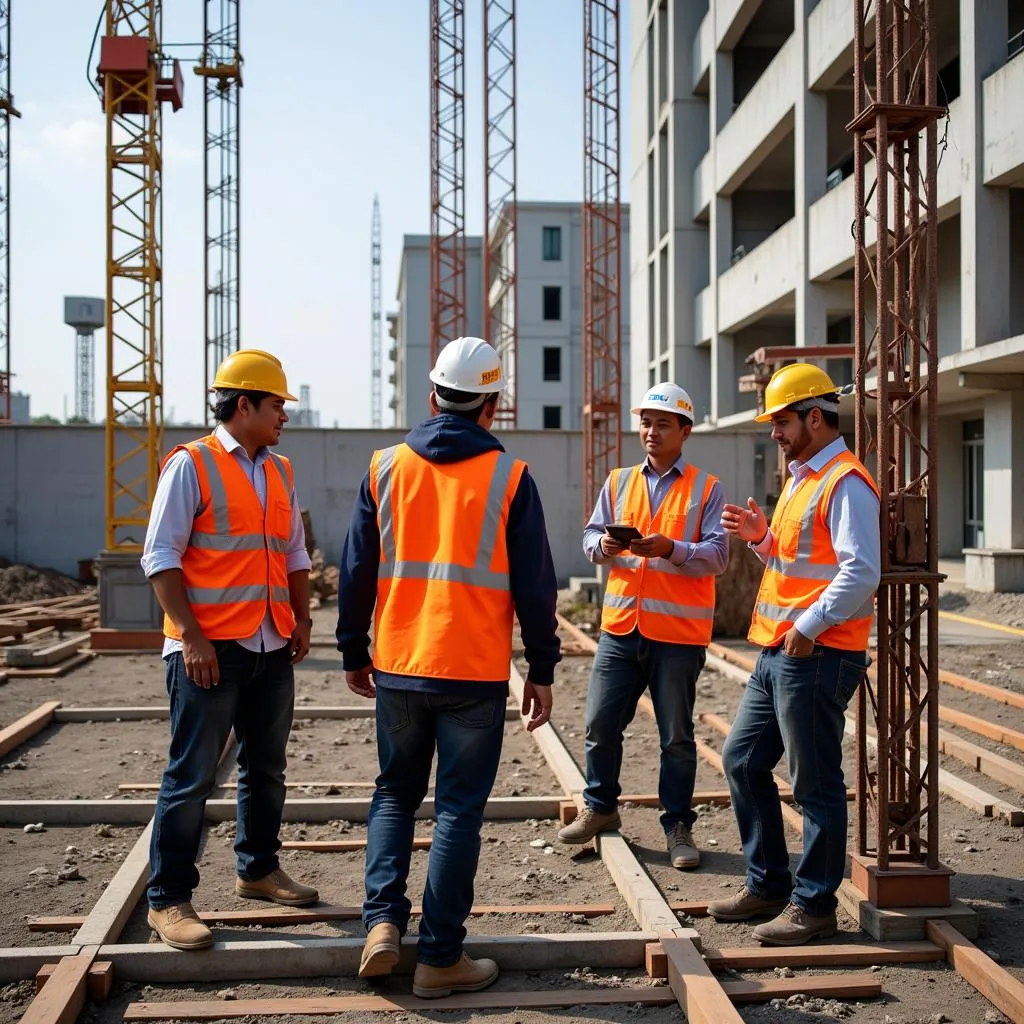The ASEAN construction industry is on an upward trajectory, driven by rapid urbanization, infrastructure development, and a burgeoning tourism sector. A key factor contributing to this growth is the increasing adoption of modern construction techniques, with “ASEAN formwork” emerging as a game-changer. This article delves into the significance of formwork in the ASEAN region, exploring its benefits, challenges, and future trends.
Understanding Formwork and its Significance
Formwork, in essence, serves as a temporary mold for shaping concrete or similar materials. It plays a crucial role in achieving desired structural forms, ensuring stability, and facilitating the efficient construction of various structures, ranging from high-rise buildings and bridges to dams and tunnels.
Advantages of Using Formwork in ASEAN Construction
The widespread adoption of formwork in ASEAN countries stems from its numerous advantages:
- Enhanced Speed and Efficiency: Formwork systems allow for faster construction times compared to traditional methods, reducing project timelines and labor costs.
- Improved Precision and Accuracy: Modern formwork solutions offer high levels of precision, resulting in consistent quality and dimensional accuracy, minimizing errors and rework.
- Enhanced Safety Standards: Formwork systems provide a safe working platform for construction workers, reducing the risk of accidents and promoting a secure working environment.
- Versatility and Flexibility: Formwork systems are adaptable to a wide range of shapes and sizes, catering to diverse architectural designs and structural requirements.
 Construction Site Utilizing Formwork in ASEAN
Construction Site Utilizing Formwork in ASEAN
Types of Formwork Prevalent in the ASEAN Market
The ASEAN formwork market is witnessing the rise of various types of formwork, each with unique advantages:
- Timber Formwork: A traditional and widely used type, known for its affordability and ease of use, particularly suitable for smaller projects.
- Steel Formwork: Highly durable and robust, ideal for large-scale projects requiring multiple reuses, contributing to long-term cost savings.
- Aluminum Formwork: Lightweight yet strong, known for its ease of handling and faster erection times, making it suitable for projects with tight deadlines.
- Plastic Formwork: Gaining popularity for its lightweight nature, reusability, and suitability for intricate designs, particularly in residential construction.
Challenges and Considerations in the ASEAN Formwork Sector
Despite the numerous benefits, the ASEAN formwork market faces some challenges:
- Skilled Labor Shortage: The industry requires skilled workers familiar with modern formwork systems, and a shortage of trained personnel can pose a challenge.
- Quality Control and Standards: Ensuring consistent quality of formwork materials and adherence to safety regulations is paramount for project success.
- Cost Considerations: The initial investment cost of modern formwork systems can be high, making it essential to balance cost-effectiveness with project requirements.
 Training Program for Formwork Installation
Training Program for Formwork Installation
Future Trends Shaping the ASEAN Formwork Landscape
The ASEAN formwork sector is expected to witness significant advancements and trends:
- Modular and Prefabricated Formwork: The increasing adoption of modular and prefabricated formwork systems is expected to streamline construction processes and reduce on-site labor requirements.
- Sustainable Formwork Solutions: There is growing emphasis on sustainable construction practices, leading to the development of eco-friendly formwork materials and recycling initiatives.
- Digitalization and Building Information Modeling (BIM): The integration of digital technologies like BIM is optimizing formwork design, planning, and execution, leading to greater efficiency and reduced waste.
Conclusion: Embracing Innovation for a Stronger ASEAN Construction Industry
Formwork plays a vital role in driving growth and efficiency in the ASEAN construction sector. By embracing innovation, investing in skilled labor, and prioritizing sustainable practices, the region can leverage the full potential of formwork technology to build a resilient and future-ready construction industry.


